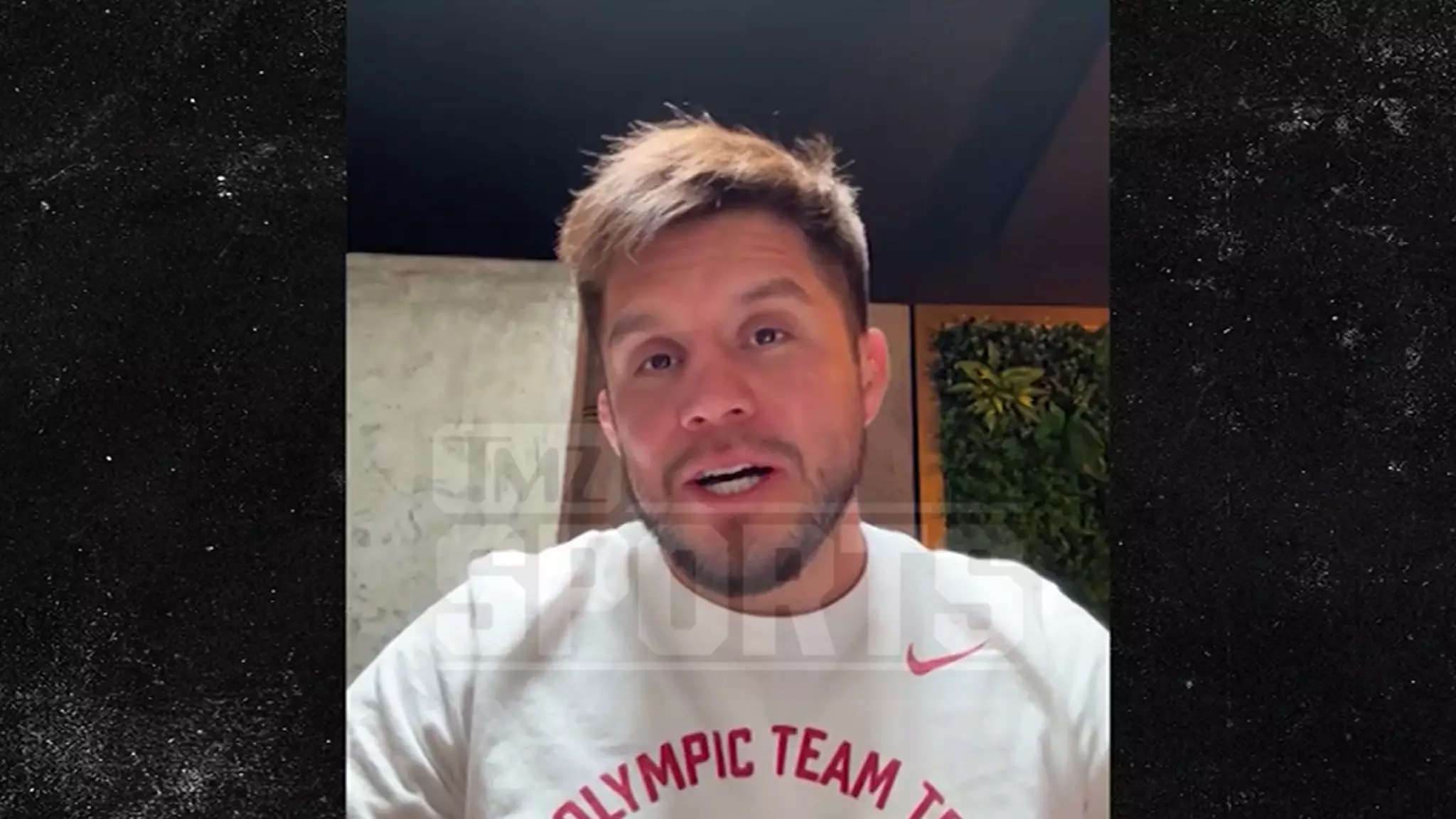In a gripping turn of events last Friday night, MMA champion Henry Cejudo became an unexpected hero during a hit-and-run incident that erupted in his Phoenix neighborhood. The narrative that unfolded captures not merely a reckless act by a young driver but highlights the complexities of human behavior in crisis situations. Cejudo described how the suspect, a 22-year-old identified as Angel Cota, drove dangerously at speeds reaching 80 MPH, ultimately crashing into homes after losing control of his vehicle. Such reckless behavior raises larger questions about accountability and the societal conditions leading to such flagrant disregard for life.
Cejudo’s Calculated Response
Cejudo’s decision to intervene was not taken lightly; he was acutely aware of the potential dangers presented by the situation. As bystanders attempted to flee the scene, the UFC star refrained from immediately apprehending them due to concerns about their possible connections with violence. When one suspect struck a neighbor confronted them, Cejudo’s protective instincts kicked in. In a moment that could have escalated further, Cejudo subdued the individual, asserting control over the chaotic environment. His actions can be analyzed not only as self-defense but as a calculated engagement designed to diffuse a potentially lethal encounter.
The Dilemma of Vigilante Justice
This incident raises critical ethical questions regarding vigilante justice. Should citizens intervene in volatile situations, or does such behavior exacerbate the chaos? Cejudo believes his involvement was necessary, expressing confidence that the situation might have had a far more tragic outcome had he not intervened. With neighbors ready to take lethal actions—one even cocked their firearm—Cejudo’s timely intervention may have prevented an irreversible tragedy. However, this highlights a troubling societal undercurrent: when community members take law enforcement into their own hands, we must question whether we are fostering a culture of fear or promoting protective behavior.
Consequences and Responsibility
In Cota’s post-arrest reflection, we find a narrative that serves as a cautionary tale. Cejudo articulated the hope that Cota learns from this experience, underscoring the notion that consequences are integral to personal growth. Cejudo’s assertion that time behind bars is the “best way to learn your lesson” reflects an attitude that prioritizes accountability over mere punishment. It raises crucial dialogue about rehabilitation versus retribution in criminal justice systems that often teeter on the edge of ineffective solutions.
The Broader Implication of Heroism
Cejudo’s actions can be viewed within a larger narrative about celebrities’ influence on societal ideals. The crossover between professional athletes and social responsibility is increasingly significant. When figures like Cejudo step into roles traditionally held for law enforcement, they challenge not only the expectations of their celebrity status but also inspire public discourse about societal duty. In a culture rife with incidents of violence and recklessness, Cejudo’s proactive stance calls for a more engaged community, showcasing how individual bravery can alter the course of events and highlight the need for deeper societal change.
The incident, though alarming, unveils a more profound narrative regarding heroism, fear, and responsibility within our communities—an exploration that far exceeds the immediate chaos of the evening.

Leave a Reply